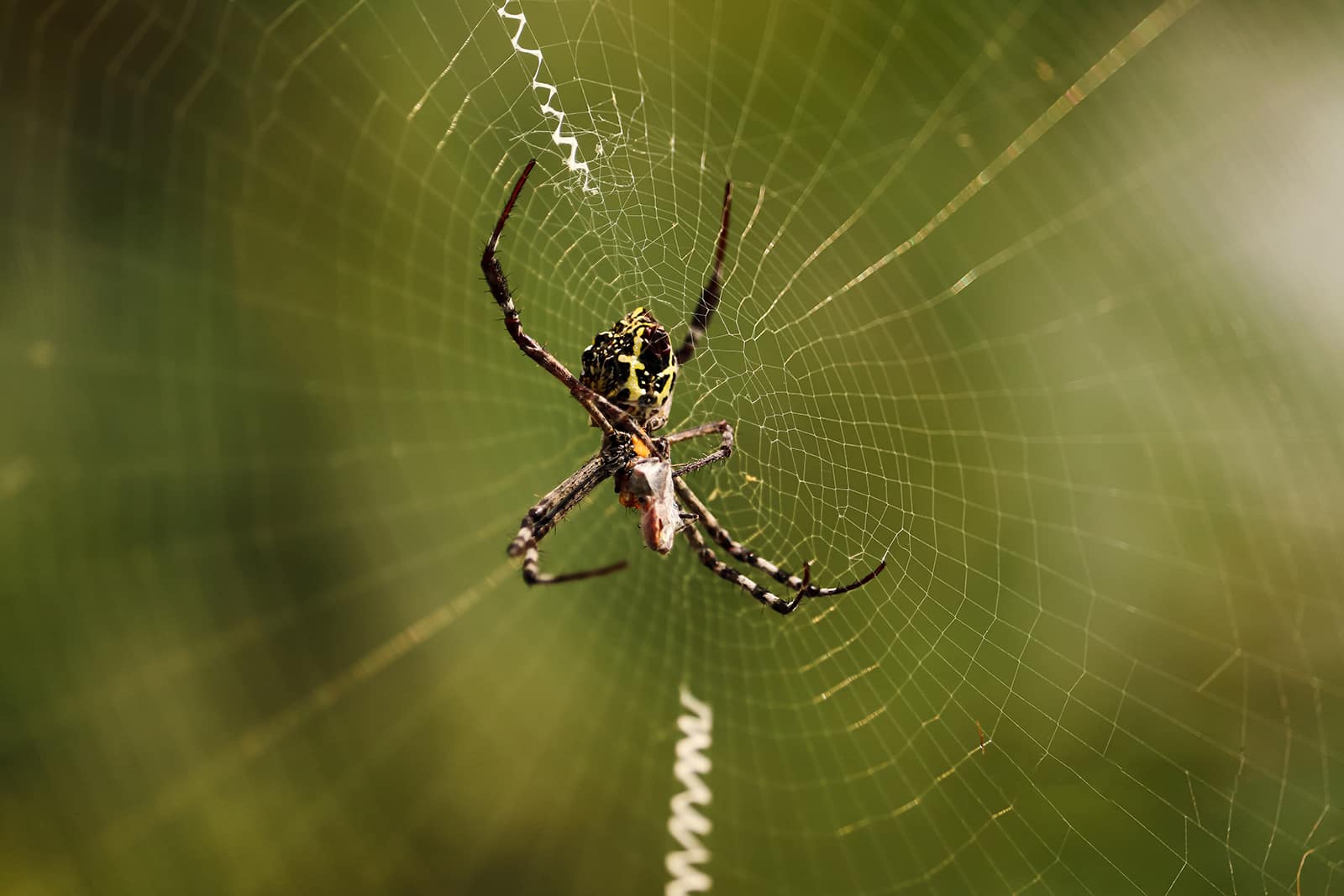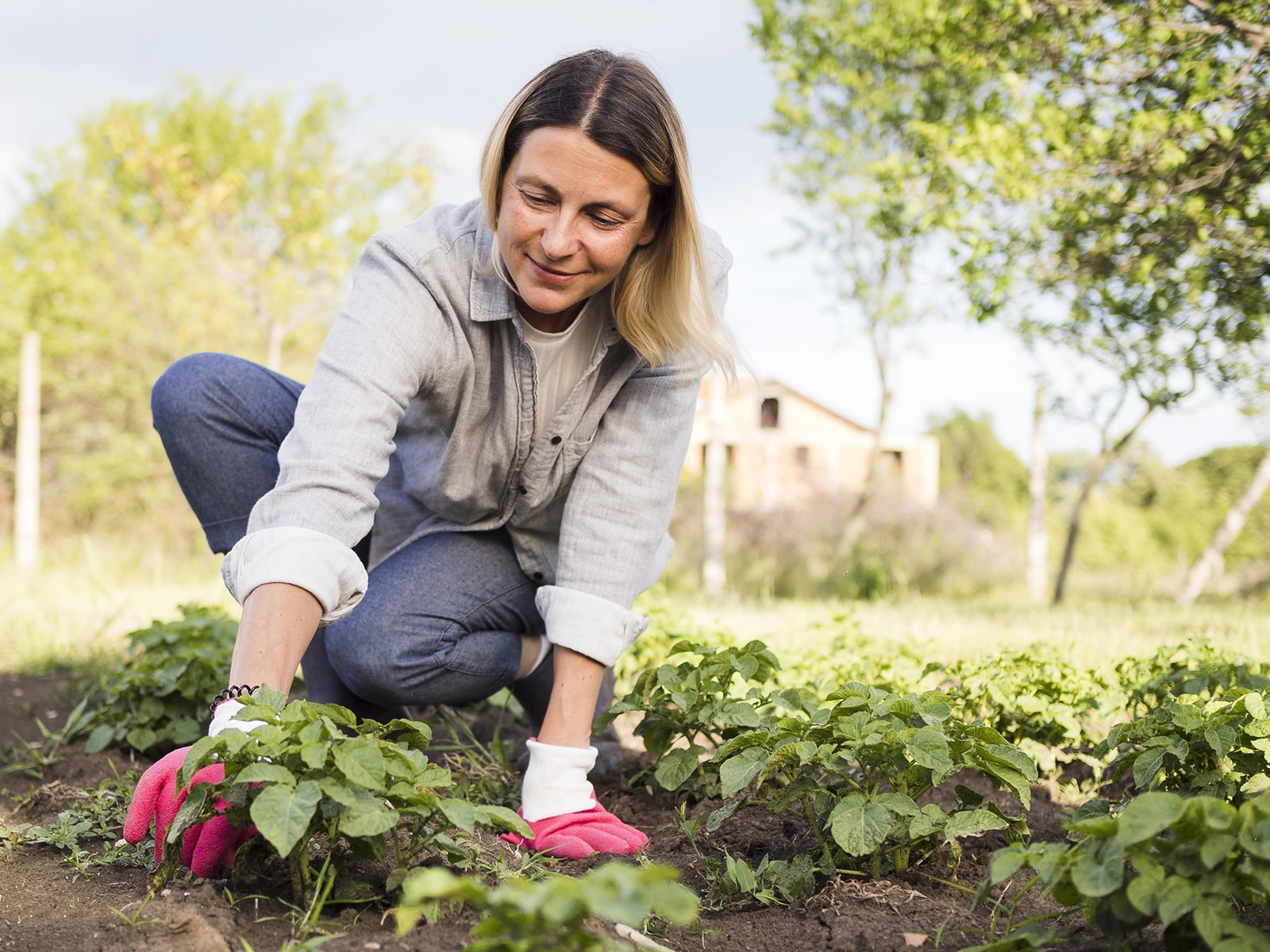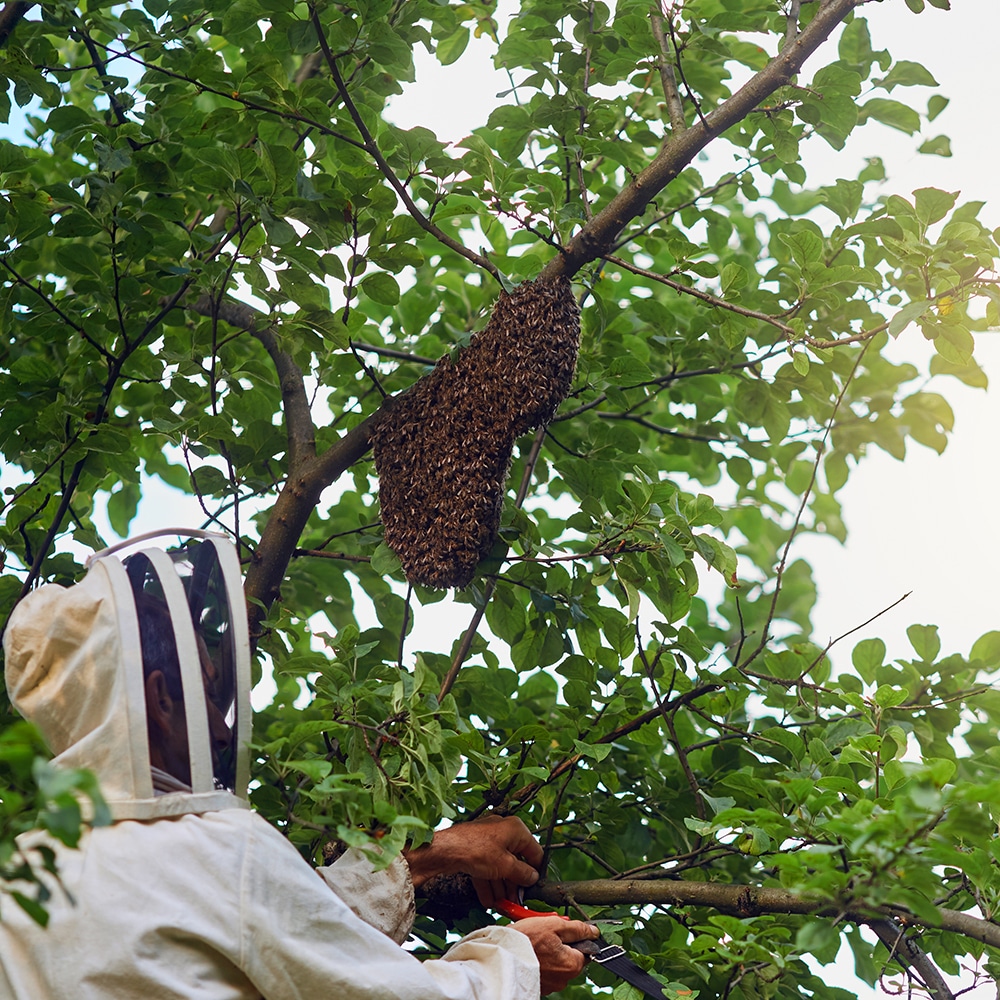
Why Do Spiders Come Back And Why
Why Do Spiders Come Back And Why On The Central Coast NSW. Responsive Proactive Solutions. Detail-focused for lasting results. Call Adam on 0431 222 894
Organic Pesticides and Repellents offer safe, eco-friendly solutions for pest control. At Vital Pest Control on the Central Coast NSW, we highlight their benefits. These solutions are reliable, fast, and responsive, ensuring a quality experience over quantity. Let’s explore the world of organic pest control together.
Common Organic Compounds
Common organic compounds like neem and diatomaceous earth are popular choices. They’re effective against a range of pests. These natural solutions help keep your garden healthy and vibrant without harmful chemicals.
Creating Homemade Sprays
Making homemade sprays is simple and cost-effective. Use ingredients like garlic and vinegar. These sprays are quick to prepare and can effectively repel pests, ensuring your garden flourishes.
Essential Oil Based Products
Essential oils are powerful pest deterrents. Oils like peppermint and eucalyptus are popular. They offer strong protection against common pests, enhancing your garden’s natural defence.
Low Toxicity Plant Extracts
Low toxicity plant extracts are safe for your family and pets. They provide effective pest control without the risks of chemical pesticides, making them ideal for households with children.
Safe Application Around Children
Organic solutions ensure safety around children. Using these methods reduces exposure to harmful chemicals, offering peace of mind while maintaining a pest-free home.
Storage and Shelf Life of Organics
Organic pesticides often have a shorter shelf life. Store them in cool, dark places. Proper storage ensures they remain effective and safe for use over time.
Using Compost as Deterrent
Compost not only enriches soil but can deter pests. Its rich nutrients create a healthy environment, reducing pest attraction naturally.
Residue and Breakdown Times
Residue from organic pesticides breaks down quickly. This means less impact on the environment and a healthier garden. It’s a responsible choice for pest control.
Discover how we can help you today! Reach out through our Contact page for more information.

In the lush and biodiverse region of Central Coast NSW, managing pests organically is crucial for maintaining the delicate balance of the ecosystem. Homeowners and gardeners often seek organic compounds that are both effective and environmentally friendly for pest control. This approach not only safeguards the environment but also ensures healthier plant growth and safer living conditions.
Neem Oil
Derived from the seeds of the neem tree, neem oil is a prominent organic compound used in pest control. It contains azadirachtin, which disrupts the feeding and reproductive systems of pests like aphids and whiteflies. Its natural origin makes it a safe option for both indoor and outdoor plants, providing a non-toxic solution to pest issues. Regular application can significantly reduce pest populations without harming beneficial insects.
Diatomaceous Earth
This powdery substance is made from fossilised remains of tiny aquatic organisms called diatoms. Diatomaceous earth is highly effective against soft-bodied insects like slugs and beetles. When insects come into contact with it, the powder absorbs oils and fats from their exoskeletons, causing them to dehydrate and die. This mechanical action ensures that no chemical residues remain in the soil or plants.
Garlic Spray
Garlic’s pungent smell acts as a natural deterrent for many pests. By blending garlic cloves with water and a few drops of soap, you can create a simple yet powerful spray. This concoction repels insects such as mosquitoes and caterpillars, keeping your garden healthy. The active compounds in garlic interfere with the sensory receptors of pests, making it difficult for them to locate their target plants.
Creating homemade sprays for pest control on the Central Coast NSW offers an eco-friendly and cost-effective way to protect your garden. As pests can damage plants and compromise yields, using organic solutions ensures you maintain a healthy ecosystem. These DIY sprays not only deter pests but also nurture beneficial insects.
Garlic and Pepper Spray
This homemade spray uses common kitchen ingredients to repel insects. Blend garlic cloves and hot peppers with water, then strain the mixture. Add a small amount of dish soap to help the solution stick to plants. Spray it on leaves and stems to deter aphids and caterpillars. Reapply after rain for continued effectiveness.
Neem Oil Solution
Neem oil is a natural pesticide that disrupts insect growth and reproduction. Mix neem oil with water and a few drops of dish soap. Shake well before spraying on affected areas. This solution targets a wide range of pests, including mites and beetles, without harming beneficial insects like bees.
Herbal Tea Spray
Herbal tea sprays, made from steeping herbs like basil or mint, can deter pests with their strong scents. Once cooled, strain the tea and apply it to plants in the morning or evening. This method is excellent for repelling small insects and keeping your garden aromatic and vibrant.
Essential oil-based products are gaining traction in pest control on the Central Coast NSW. These natural alternatives not only keep pests at bay but also offer a safer option for households and gardens. As the demand for organic solutions grows, understanding how essential oils can be effective is crucial for homeowners and gardeners alike.
Essential Oils for Pest Repellency
Certain essential oils like peppermint, citronella, and eucalyptus have properties that deter pests. These oils disrupt the scent trails insects rely on, making it difficult for them to navigate and find food. By applying these oils around entry points and garden perimeters, you can create a natural barrier that keeps pests out without harmful chemicals.
Application Methods
Applying essential oils can be done in several ways. Diluting them in water and using a spray bottle is a common method. This allows you to cover large areas efficiently. Alternatively, mixing oils with a carrier like coconut oil can create a longer-lasting barrier when applied directly to surfaces. Consistency in application ensures ongoing protection from pests.
Benefits Beyond Pest Control
In addition to repelling pests, essential oils offer other benefits. Many have pleasant fragrances that enhance the atmosphere of your space. They are also less likely to harm beneficial insects like bees. This makes them an attractive option for eco-friendly pest control on the Central Coast NSW, promoting a balanced ecosystem.
In Central Coast NSW, using low toxicity plant extracts for pest control is gaining popularity due to their eco-friendly nature and effectiveness. These natural solutions cater to both residential and commercial needs, reducing harmful chemical usage while maintaining a healthy environment. As part of the broader topic of organic pesticides and repellents, low toxicity plant extracts offer a viable alternative for those seeking sustainable pest management.
Neem Oil
Neem oil stands out for its versatility in pest control. Derived from the seeds of the neem tree, this oil disrupts the life cycle of pests, making it an effective solution for various insects. Its low toxicity ensures that beneficial insects remain unharmed, promoting a balanced ecosystem.
Eucalyptus Extract
Eucalyptus extract serves as a natural repellent, particularly effective against mosquitoes and flies. The strong scent deters pests while being safe for humans and pets. Its application in gardens helps protect plants without relying on synthetic chemicals.
Garlic Spray
Garlic spray offers a potent yet gentle approach to pest control. The sulphur compounds in garlic repel insects and can be used on a wide range of plants. This extract not only deters pests but also adds a layer of protection to crops in local gardens.
Keeping children safe while managing pests is crucial, especially on the Central Coast of NSW. Vital Pest Control focuses on using organic pesticides and repellents that are effective yet safe for young ones. This approach ensures that pest management is not at the expense of children’s health.
Understanding Organic Solutions
Organic pesticides are derived from natural sources. They pose less risk compared to chemical alternatives. By utilising plant-based oils and extracts, these solutions target pests without harmful side effects. Vital Pest Control’s methods ensure that environments remain safe for children while effectively managing pest issues.
Application Methods
Careful application is key to ensuring safety. Technicians from Vital Pest Control are trained to apply treatments in child-friendly areas without leaving harmful residues. Focusing on targeted applications ensures pests are controlled, while children can safely play and explore their surroundings.
Education and Awareness
Educating families about safe pest control practices is vital. Vital Pest Control provides guidance on maintaining pest-free spaces naturally. Encouraging practices like removing food scraps and sealing entry points helps minimise pests, reducing the need for frequent treatments.
Adopting these strategies ensures a healthier, safer environment for children while effectively managing pests on the Central Coast. Vital Pest Control remains dedicated to sustainable and safe pest control solutions.
Storing organic pesticides and repellents properly is crucial for maintaining their effectiveness. For Vital Pest Control on the Central Coast, NSW, understanding how to extend the shelf life of these organic solutions can make a significant difference in pest management success.
Temperature and Light Sensitivity
Organic pesticides are sensitive to temperature changes and sunlight. Storing them in a cool, dark place like a garage or basement helps preserve their potency. Avoid direct sunlight, as it can break down the active ingredients, reducing their effectiveness over time. Consistent temperatures are key, so keep them away from windows or heat sources.
Seal and Secure
Proper sealing is vital when storing organics. Use airtight containers to prevent moisture and air from degrading the product. Ensure lids are tightly closed after each use. This prevents contamination and preserves the pesticide’s active properties. Labelling containers with purchase dates also helps in monitoring shelf life effectively.
Check Expiry Dates
Always be aware of expiration dates on organic products. Over time, even well-stored pesticides lose efficacy. Regularly checking these dates ensures that you are using the most effective solutions for pest control. Using expired products can lead to unsatisfactory results, making it crucial to rotate stock.
Using compost as a natural deterrent for pests is gaining popularity on the Central Coast NSW. This eco-friendly approach not only enriches the soil but also helps in managing unwanted garden intruders. By understanding how compost works against pests, you can maintain a healthy garden while reducing chemical usage.
Enhancing Soil Health
Compost improves soil structure, boosting plant health and resilience. Healthy plants are less susceptible to pest attacks. Rich in nutrients and microorganisms, compost creates a thriving ecosystem that supports beneficial insects, which naturally keep pest populations in check.
Masking Plant Scents
Compost can obscure the scents that attract pests to your plants. By creating a balanced environment, the natural aroma of compost can confuse pests, making it harder for them to locate their preferred targets. This helps reduce the number of pests in your garden.
Encouraging Beneficial Predators
Compost attracts and nourishes beneficial predators like beetles and spiders. These natural allies help control pests by feeding on them. By fostering a diverse community of helpful insects, your garden can maintain a natural balance, reducing the need for chemical interventions.
Incorporating compost into pest control strategies can be an effective way to protect your garden while promoting sustainability. The benefits of using compost extend beyond pest management, contributing to a healthier and more productive garden environment.
Understanding residue and breakdown times for organic pest control is crucial for anyone seeking sustainable solutions on the Central Coast, NSW. Organic pesticides and repellents offer an eco-friendly alternative, but knowing how long they persist in the environment helps in planning their application effectively.
Factors Influencing Residue Duration
The longevity of organic pesticide residues depends on several elements. Local weather conditions like sunlight and rainfall can speed up the breakdown process. The type of soil also plays a significant role, as sandy soils might allow faster degradation compared to clay-heavy ones. Additionally, the specific organic compound used influences how long residues remain active.
Typical Breakdown Times
Organic pesticides generally break down quicker than synthetic ones. On the Central Coast, they might degrade within days to a few weeks, depending on the compound. For instance, neem oil, commonly used in organic pest control, typically degrades within one week, making it a popular choice for eco-conscious gardeners.
Safe Application Practices
To minimise residue impact, follow label instructions carefully. Applying organic pesticides during favourable weather can enhance effectiveness and reduce unnecessary residues. Regular monitoring of pest levels ensures that applications are timely and minimal, safeguarding both the environment and human health.
Finding certified organic brands for pest control on the Central Coast NSW is essential for those seeking eco-friendly solutions. Organic pesticides and repellents offer a safe yet effective alternative to conventional products. These options not only protect the environment but also ensure the health and safety of families and pets.
Understanding Certification Standards
When sourcing organic brands, it’s crucial to understand certification standards. Look for products certified by reputable organisations like Australian Certified Organic or NASAA. These certifications ensure that the products meet strict guidelines, guaranteeing their organic integrity. This helps in maintaining sustainable pest control practices that align with environmental safety norms.
Exploring Local Suppliers
Local suppliers on the Central Coast often offer a range of certified organic options. Visiting farmers’ markets or local gardening stores can provide direct access to these products. Building relationships with local suppliers not only supports the community but also ensures you are sourcing fresh and effective organic solutions tailored for your region.
Evaluating Product Effectiveness
Effectiveness is a key factor when choosing organic pest control products. Research and reviews can provide insights into how well these products perform against specific pests. Seek feedback from other users in your community or online forums to gauge the success of different options. This step ensures that the organic solutions you choose effectively address your pest control needs.
On the Central Coast of NSW, managing pests organically is crucial for both home gardens and commercial farms. Combining different organic methods offers an effective solution, reducing reliance on chemical pesticides and promoting a healthier ecosystem. This approach not only safeguards crops but also enhances soil fertility and biodiversity.
Companion Planting
Companion planting involves growing certain plants together to naturally deter pests. For example, planting marigolds alongside vegetables can repel nematodes, while basil acts as a natural deterrent for aphids. This method leverages nature’s own balance, using scent and plant properties to keep pests at bay. By carefully selecting companion plants, gardeners can create a natural barrier against common pests, improving crop resilience.
Beneficial Insects
Introducing beneficial insects like ladybugs and lacewings can significantly reduce pest populations. These insects prey on common pests such as aphids and mites, providing natural pest control. Encouraging their presence through habitat creation or commercial purchase helps maintain the ecological balance. This method is sustainable, reducing the need for chemical interventions while supporting local biodiversity.
Natural Barriers and Traps
Utilising natural barriers and traps is another effective strategy. Physical barriers such as nets and row covers protect plants from pests while allowing sunlight and rain. Homemade traps using simple materials like vinegar or beer can lure and capture pests. These methods are cost-effective and environmentally friendly, offering a practical solution for gardeners.
When choosing organic pesticides and repellents for pest control on the Central Coast NSW, it’s crucial to check for product certifications. Certifications ensure the products are safe, effective, and eco-friendly. Knowing how to identify and understand these certifications can make a significant difference in protecting your home and environment.
Understanding Certification Labels
Certification labels on organic pesticides signal compliance with specific safety and environmental standards. Look for labels from reputable organisations like the Australian Certified Organic (ACO) or the National Association for Sustainable Agriculture Australia (NASAA). These labels confirm that the products meet rigorous organic standards, ensuring minimal impact on ecosystems while effectively managing pests.
Importance of Safety Standards
Safety standards are paramount in pest control products. Certifications ensure that the ingredients used are non-toxic to humans and pets. This is particularly important in homes with children or animals. Certified products undergo testing to meet safety benchmarks, providing peace of mind that the solutions used are both effective and safe for your family.
Eco-Friendly Benefits
Choosing certified organic pesticides supports sustainability. These products are crafted to degrade naturally, reducing pollution and safeguarding the Central Coast’s biodiversity. By selecting certified options, you contribute to the preservation of local wildlife and habitats, promoting a healthier environment for future generations.
When tackling pest issues on the Central Coast, ensuring the safety of pets and local wildlife is vital. Many residents seek effective solutions that do not harm furry friends or the surrounding ecosystem. Organic pesticides and repellents offer a sustainable option, balancing pest control with environmental care.
Understanding Organic Pesticides
Organic pesticides, derived from natural sources, are designed to minimise harm to non-target species like pets and wildlife. Unlike chemical pesticides, these options focus on disrupting pest life cycles without toxic residues. They ensure that while pests are managed, your pets can roam freely and local wildlife thrives. Commonly used ingredients include neem oil and diatomaceous earth, both known for their effectiveness and safety.
Choosing the Right Repellents
Repellents play a crucial role in keeping pests at bay without endangering animals. Natural repellents often use ingredients like peppermint oil and garlic. These substances deter pests through scent or taste, creating a barrier without posing a risk to animals. Selecting the right repellent involves understanding the specific pest problem and the local wildlife that might be affected.
Implementing Safe Pest Control Practices
Incorporating safe pest control measures involves regular monitoring and maintenance. This can include sealing entry points and maintaining clean surroundings to reduce pest attraction. These proactive steps, combined with organic treatments, ensure that pest control efforts do not inadvertently harm pets or wildlife. It’s about creating a harmonious environment where nature and humans coexist peacefully.
Organic pesticides and repellents offer a sustainable choice for pest control on the Central Coast NSW. However, avoiding phytotoxic effects is crucial to maintaining plant health. Phytotoxicity refers to the toxic impact that certain substances can have on plant life, potentially damaging or even killing them. Understanding and mitigating these effects ensures that your pest control efforts are effective without compromising your garden’s vitality.
Choose the Right Product
Using organic products doesn’t automatically guarantee safety for all plants. Each plant species reacts differently to various substances, so choosing the right product is essential. Always read labels and select products specifically designed for the plants you are treating. This reduces the risk of phytotoxicity while effectively managing pests.
Test Before Full Application
Before applying any organic pesticide or repellent across your entire garden, conduct a small-scale test. Apply the product to a limited section of your plants and wait a few days to observe any adverse reactions. This precaution can prevent widespread damage and ensure that the product is safe for your garden’s unique ecosystem.
Monitor Weather Conditions
Weather plays a significant role in the effectiveness and safety of pest control applications. High temperatures, for example, can amplify phytotoxic effects. Apply treatments during cooler parts of the day and avoid periods of intense sunlight or rain. Monitoring weather conditions helps to safeguard plant health and optimise pest control.
In the realm of pest control on the Central Coast NSW, finding the right balance between cost and availability is crucial. As residents turn to organic pesticides and repellents, understanding how to navigate these considerations can save both time and money. This approach not only ensures effective pest management but also aligns with a growing preference for eco-friendly solutions.
Understanding Cost Implications
Cost considerations for pest control can vary widely based on the type and extent of the infestation. Organic options, while often perceived as pricier, can be cost-effective in the long term. They minimise the risk of resistant pests, potentially reducing future expenditure on pest control. By evaluating the initial investment against long-term benefits, homeowners can make informed decisions.
Availability of Organic Products
Availability is another key factor. The Central Coast offers a range of organic pesticides, but accessibility can differ. Local suppliers may have varying stock levels, influenced by demand and seasonality. Building relationships with reliable suppliers ensures a steady supply, preventing delays in treatment and maintaining effective pest management practices.
Choosing the Right Service Provider
Choosing a pest control service provider who understands the balance between cost and availability is vital. Providers with a solid reputation and experience in organic methods can offer tailored solutions. They assist in selecting the right products and ensure timely application, optimising both cost-efficiency and availability for Central Coast residents.
Adopting eco-friendly strategies for pest control on the Central Coast of NSW is essential for sustainable living. Vital Pest Control offers a long-term approach that not only tackles pest problems but also preserves the environment. This strategy focuses on prevention, natural solutions, and maintaining ecological balance.
Integrated Pest Management
Integrated Pest Management (IPM) combines various techniques to manage pests effectively. This approach prioritises understanding pest behaviour and lifecycle, allowing for targeted interventions. By using IPM, Vital Pest Control minimises reliance on chemicals, reducing environmental impact. Regular monitoring and accurate pest identification are crucial components, ensuring effective solutions that align with ecological principles.
Biological Control Methods
Biological control involves using natural predators to manage pest populations. Encouraging these beneficial organisms helps maintain balance without harming ecosystems. For instance, introducing ladybugs to control aphid populations is an effective, eco-friendly tactic. This method supports biodiversity and reduces the need for chemical interventions, fostering a healthier environment.
Natural Barriers and Repellents
Using natural barriers and repellents is another sustainable strategy. Planting pest-deterring herbs like basil and mint creates a natural defence. These plants release scents that pests dislike, providing an organic shield for gardens and homes. Essential oils, such as tea tree or eucalyptus, can also be used to deter pests safely, ensuring a toxin-free approach to pest control.
Please leave your details in the form and we will call you back the same day.
So that we can process your enquire efficiently please leave as many details as possible and upload any relevant images. (.jpg and .png format)

Why Do Spiders Come Back And Why On The Central Coast NSW. Responsive Proactive Solutions. Detail-focused for lasting results. Call Adam on 0431 222 894

Building a Long Term Residential Pest Protection Plan For Home Owners On The Central Coast NSW. Responsive Proactive Solutions. Detail-focused for lasting results. Call Adam on 0431 222 894

How to Protect Your Home from Wasp Infestations On The Central Coast NSW. Responsive Proactive Solutions. Detail-focused for lasting results. Call Adam on 0431 222 894